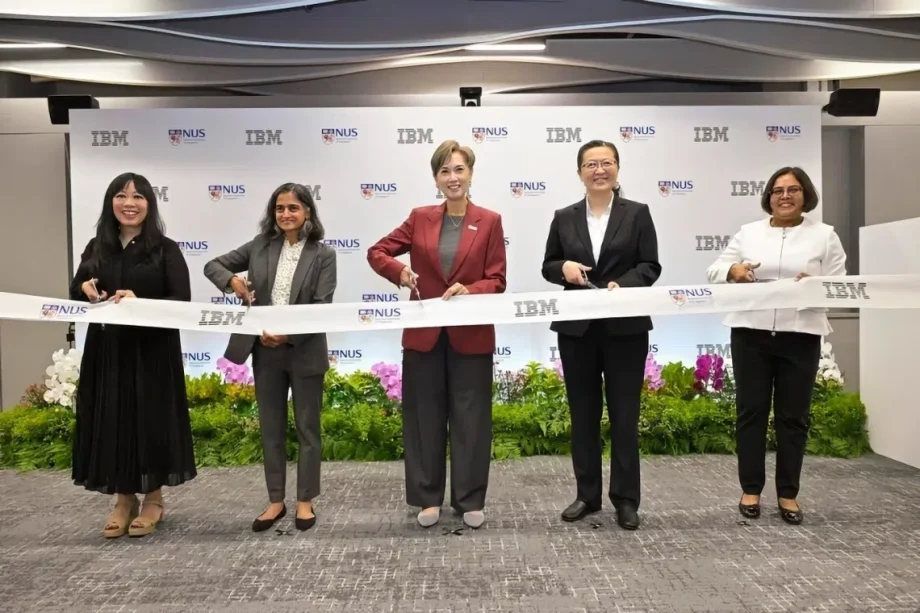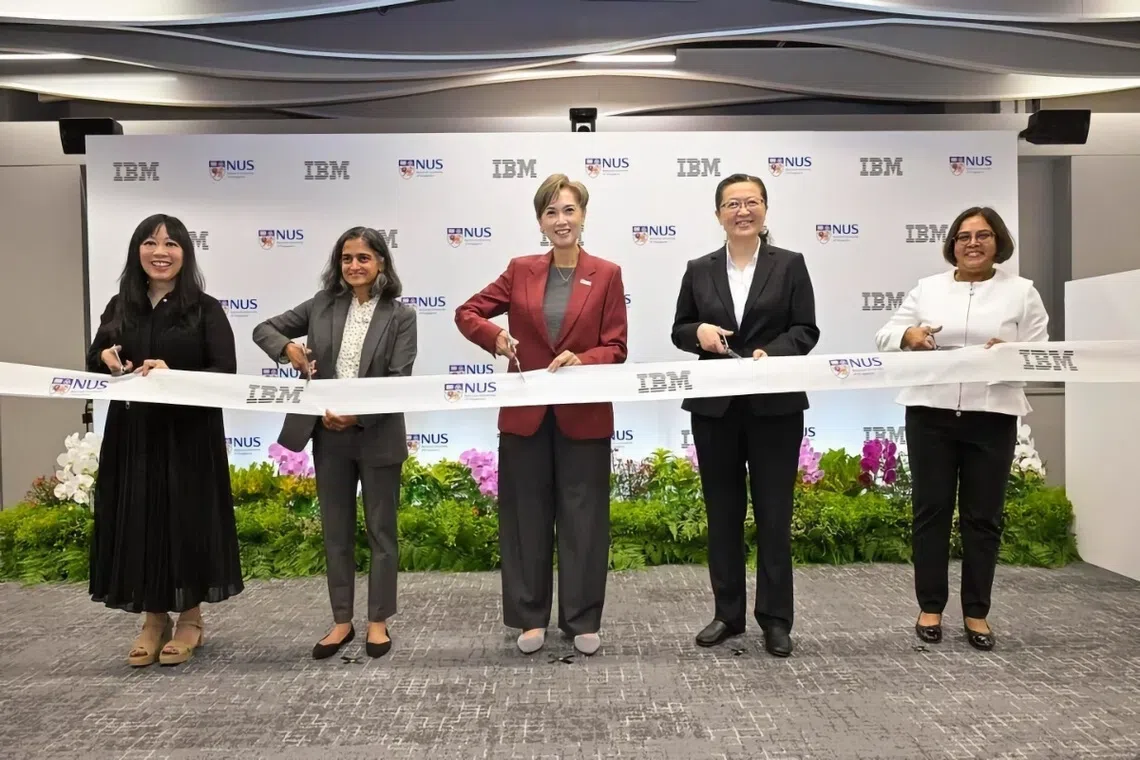A new AI centre in Singapore will use patented energy-efficient computer chips to create artificial intelligence models that can provide climate change predictions and aid in the deployment of emergency services to tackle disasters.
A collaboration between IBM and the National University of Singapore (NUS), the AI research and innovation centre will focus on making AI greener. It was launched on the sidelines of the IBM Quantum Summit APAC on Oct 23.
With the new centre, IBM’s full-stack AI infrastructure system – the entire spectrum of software and technology required to build, test and deploy an application – will for the first time be installed on a university campus in the Asia-Pacific region.
The infrastructure, which will be deployed at the NUS School of Computing by the first quarter of 2026, will include IBM’s Spyre chips, which are among the company’s Artificial Intelligence Unit (AIU) chips.
AIU is a new chip architecture designed specifically for AI workloads.
IBM has noted that such AI accelerator chips can be up to a thousand times more energy-efficient than the graphics processing units (GPUs) often used for AI.
“The AIU is built for sustainable AI – optimising throughput per watt, minimising movement of data, and delivering lower energy per inference,” said Professor Liu Bin, NUS deputy president for research and technology, during the launch.
“IBM and NUS will continue to co-develop AI applications with clear pathways that will benefit Singapore’s economy and society,” she added.







